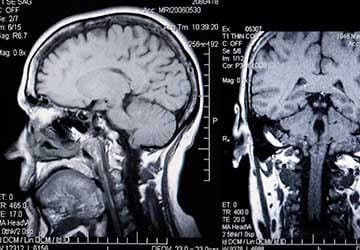Columbia Brain Injury Attorney
Columbia brain injury attorney at the Strom Law Firm is familiar with litigating South Carolina personal injury cases and can often help victims recover substantially more compensation than they would be able to retain on their own, so it is highly advisable for anyone injured in an accident to discuss their options with one of our Columbia personal injury attorneys.
In the United States, Traumatic Brain Injuries occur far too often. Brain injuries can be the result of an accident, defective product, or a fall. A brain injury can occur even without hitting one’s head or losing consciousness. Additionally, the injured person may not even notice the effects of a brain injury for several months after the accident. The seriousness of brain injury ranges from mild to severe. Due to the complexities of the human brain, every injury is unique and can affect the entire body and mind from memory to controlling one’s emotion.
Common Brain Injury Accidents
A brain injury can occur after even a relatively common injury and leave people stranded paying for costly medical bills and side effects that could have a lifelong impact. The more common accidents that lead to brain injury are:
Types of Columbia Brain Injury Treatment

- ICU (Intensive Care Unit) – A patient’s ICU goals include reaching medical stability and preventing medical disaster.
- Acute Rehabilitation – Working with a brain injury victim to regain as many activities of daily living as possible.
- Post-acute Rehabilitation –The goal of post-acute rehabilitation is to help the patient regain the most independent level of functioning possible. This can be a more intensive physical activity.
- Outpatient Therapy – Often occurring after acute and/or post-acute rehabilitation, a brain injury sufferer often continues to receive outpatient treatments and therapies to continue along and heighten their recovery from their injuries.
- In-Home Care – Often, victims who suffer a brain injury will require extensive at-home care. Sometimes, this helps them re-learn basic tasks, other times it requires assistance to perform seemingly menial tasks.
Not sure where to start? Contact a Columbia brain injury attorney who cares. Call 803-252-4800 for your free, no-obligation consultation.
Contact a Columbia Brain Injury Attorney

Brain injury effects are often traumatic and life-long, resulting in temporary or permanent injuries. If you or a loved one has suffered a brain injury in Columbia, Richland County, or anywhere else across South Carolina, contact us and speak with a Columbia brain injury attorney who can evaluate your case. We offer free case evaluations and we do not collect a fee unless we recover for you. Contact the experienced legal team at Strom Law Firm in Columbia at 803-252-4800 and find out if we are able to help you.
Client Testimonial
Here’s what Scotty K. said about us on Google:
“The Strom Law Firm provided expert legal guidance, in a friendly, compassionate fashion. Ally Benevento was my attorney, and wow, what a fantastic person to work with! She was sharp as a tac, and handled my case perfectly. I highly reccomend using the Strom Law Firm for your legal needs, they WILL NOT let you down. ”
Rating: 5/5 ⭐⭐⭐⭐⭐
Check out all of our Google reviews!


















